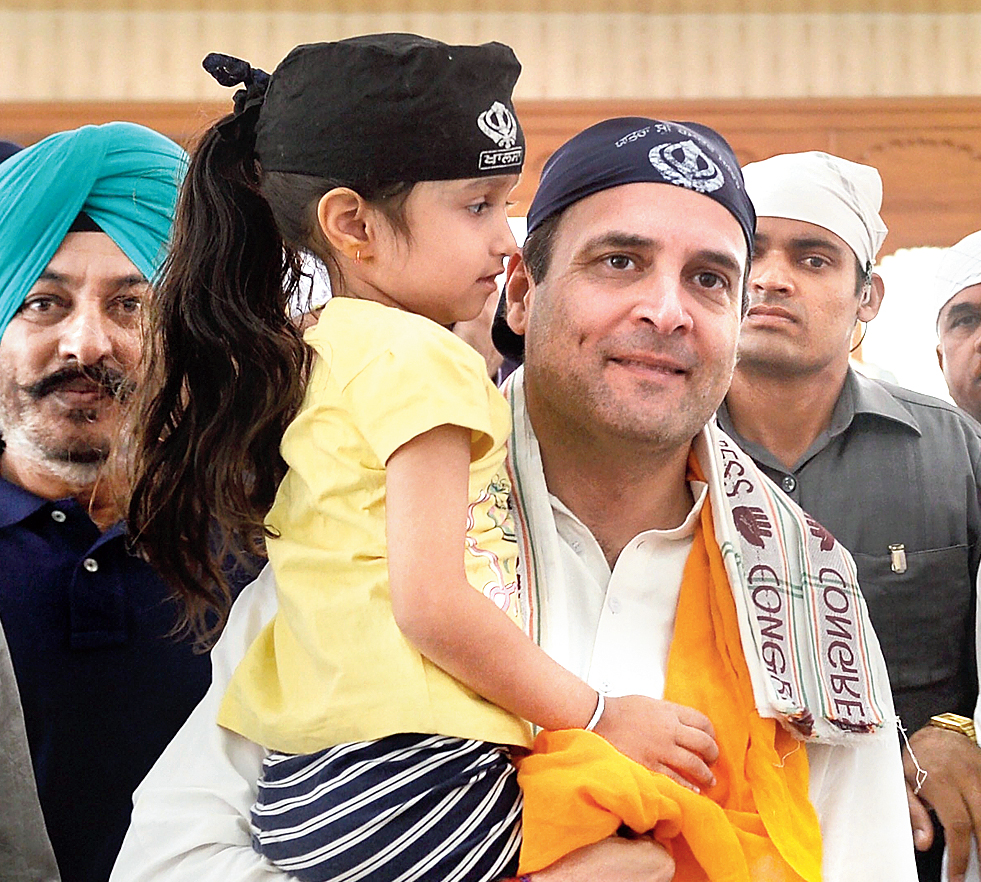Rahul Gandhi has sought to draw a sharp contrast between himself and Narendra Modi, insisting that he would never make a false promise and declaring that he wanted to build a trust-based relationship with the people.
“Go through my speeches and tell me if I have made a false promise,” he told a rally in Chhattisgarh, where Assembly elections are scheduled on November 12 and 20.
“You can lie and fool the people once. The second time, people won’t listen to you. I want a long-term relationship with the people that is based on trust. I do what I say. If I make a promise, I will fulfil it.”
Rahul is known for making earnest statements, which have been cited by Sangh parivar sympathisers to ridicule him and try to create an impression that he lives in a quixotic world.
But unlike a few years ago, the nature of the narrative has reversed roles now. One of the biggest millstones around the Modi government now is a perception that the Prime Minister made too many tall promises on the campaign trail.
“Achchhe din”, the blockbuster slogan of 2014, is one of the most lampooned words in the political lexicon, its hollowness amplified by BJP president’s remarkably candid use of the idiomatic expression “jumla”.
Against such a backdrop, Rahul’s statement on pre-poll promises serves to underscore the letdown of the mandate of 2014.
The Congress president said as much. “In 2014, Narendra Modi made lofty promises and the people trusted him. They made him Prime Minister. But he didn’t deliver,” he said.
“He had promised two crore jobs every year. He had spoken about fighting corruption, helping the farmers. Now he doesn’t refer to those promises. I don’t lie; find out whether the Congress governments in Karnataka and Punjab are delivering on their manifestos or not,” Rahul added.
If Rahul scores high on intentions, he has yet to spell out how he will keep afloat what looks on paper like a populism-driven agenda -– at least in the states that are electing governments this winter.
In the manifesto for Madhya Pradesh, the Congress has made series of promises that requires intense resource mobilisation. In addition to waiving farm loans and halving electricity bills, the party has promised smart phones for women aged 17 to 45, a wedding aid of Rs 51,000 for poor girls, interest-free loans for college girls to buy two-wheelers, free education for girls and a laptop for every student who scores more than 70 per cent in the Class XII exams.
The Congress manifesto for Chhattisgarh, released on Friday, too made alluring promises to the poor.
Although the party has started delivering on some of the promises in Punjab, it is not clear how such a freebie drive can be sustained in multiple states for long.
Rahul seemed to suggest that if the Congress came to power in these states, chief ministers would be held accountable and their jobs would be at stake.
“If you get your demands into the manifesto, they are bound to be delivered. If one chief minister won’t deliver, another will come to fulfil the promises,” Rahul had earlier told a poll rally.
On Saturday, he said: “I respect you, I will not betray you.”










